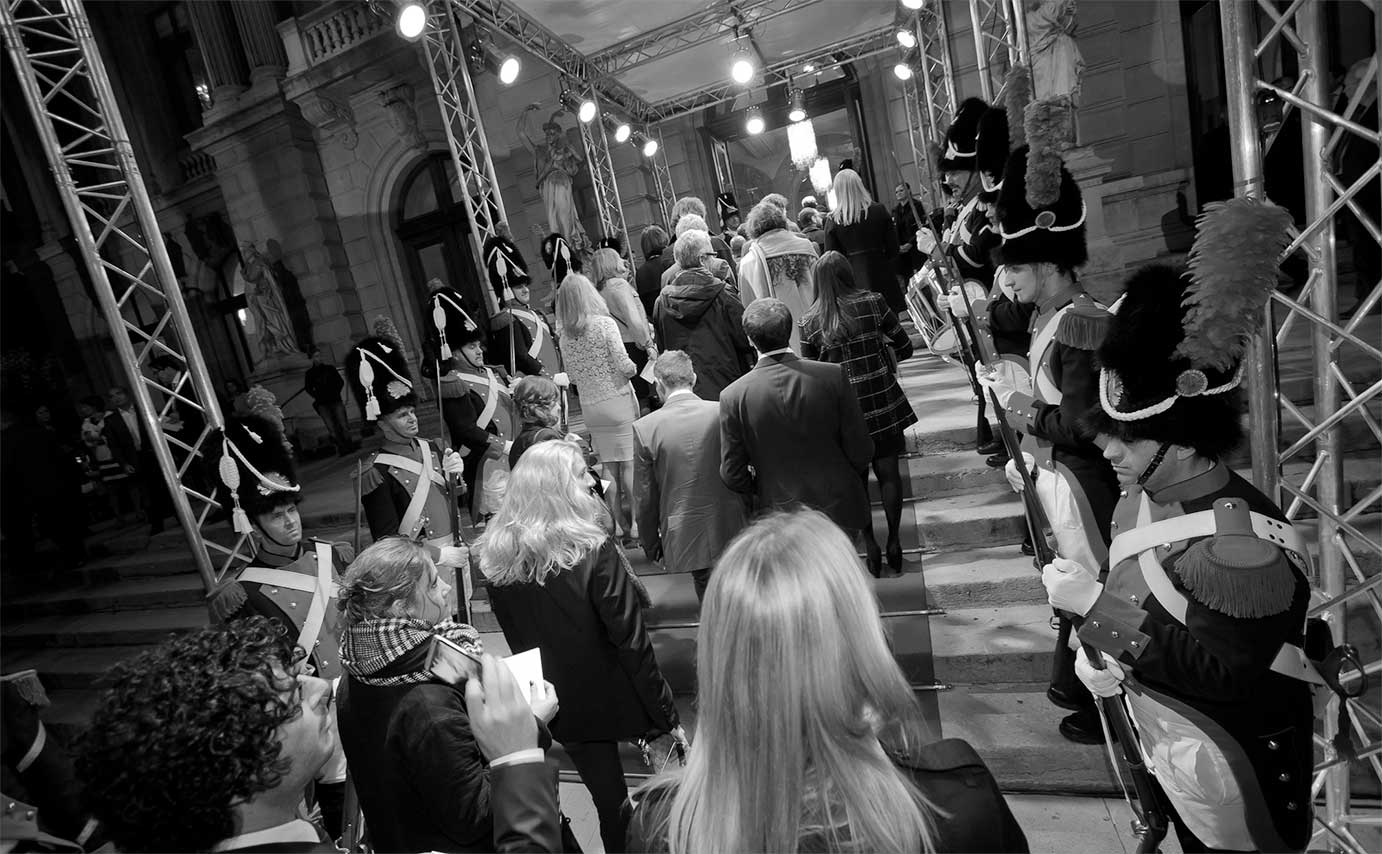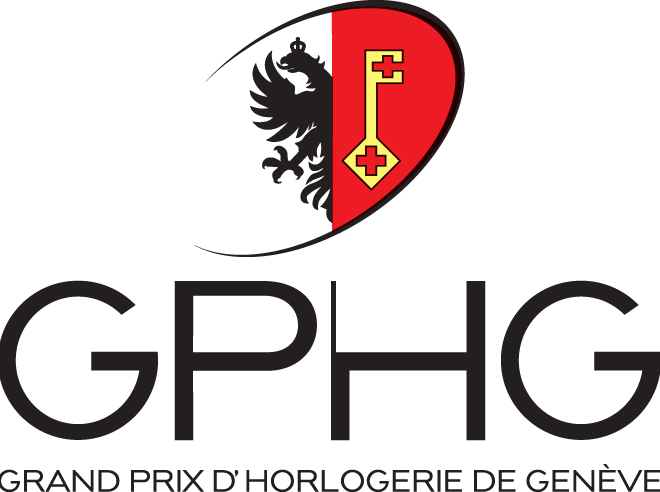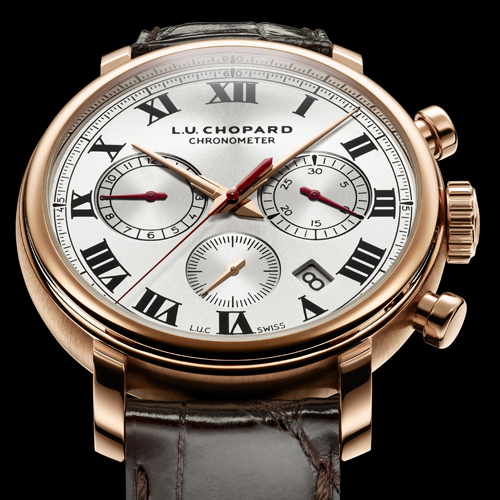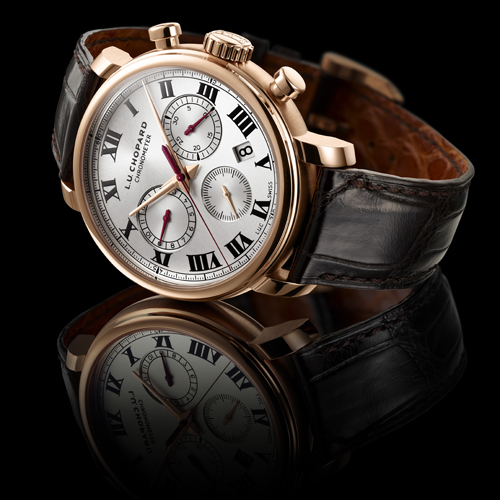
L.U.C 1963 Chronograph
Power reserve: 60 h, 28800 vph
Poinçon de Genève
The nobility of a hand-wound chronograph
Beneath its classically elegant appearance, the L.U.C 1963 Chronograph is a highly technical and sophisticated watch. Its hand-wound chronograph calibre is distinguished by a sophisticated technical construction and a particularly high degree of finishing that earns it the Poinçon de Genève hallmark. Its firm roots in the tradition of fine chronographs stems from a comprehensive aesthetic, technical and historical approach, as well as Karl-Friedrich’s personal passion for the purest expressions of traditional watchmaking.
Hand-wound chronographs embody a spirit of nobility, along with technical and aesthetic perfection. They are the grand classic when it comes to short-time measurements and since they are not fitted with an oscillating weight that conceals much of the movement, they are ideally suited to showcasing impeccable craftsmanship. The L.U.C 1963 Chronograph thus has all the attributes of a true horological aristocrat.
L.U.C 1963: a commemorative series
The L.U.C 1963 Chronograph is presented in conjunction with the L.U.C 1963. Both are named after the year the Scheufele family acquired the Maison Chopard and celebrate the 50th anniversary of this event. They share the same case design, echoing the pocket-watches produced by Chopard in the 1960’s. The case of the L.U.C 1963 Chronograph is made of 18-carat rose gold and features cambered sides with a brushed finish along with a polished and slender rounded bezel. Chopard’s Co-President Karl-Friedrich Scheufele explains the origins of this project: “I had always dreamed of making a hand-wound chronograph. I have a real passion for this type of movement which represents the quintessence of traditional horology in its purest and noblest forms. This model was programmed ever since we launched the L.U.C. Chrono One in 2006 and for me, it is a dream come true.”
The 42 mm-diameter case of the L.U.C 1963 Chronograph is perfectly versatile. The elegance of its proportions is underlined by the execution of its deceptively classic-looking dial. The curved Roman numerals are a signature of the L.U.C collections, as are the dauphine hands, while the red chronograph hands clarify read-off, energise the dial and are a nod to the chronograph’s primary purpose: measuring sports events.
A hand-wound chronograph calibre with flyback function
The new L.U.C Calibre 03.07-L is a simpler and yet nobler version of Calibre 03.03-L: Chopard’s first in-house manufactured chronograph movement, which features automatic winding. The L.U.C 03.07-L movement picks its chief technical characteristics, the most visible being the flyback function that serves to perform successive timing operations without having to reset the counters to zero using the 4 o’clock pusher. Its vertical coupling-clutch ensures more reliable activation of the chronograph sweep-seconds hand. Finally, pulling out the crown resets the small seconds hand at 6 o’clock and keeps it motionless, thus enabling accurate synchronisation with a reference time. The latter function stems from the precision-timing vocation of the L.U.C 1963 Chronograph, which is highlighted on the dial by the inscription “Chronometer” and certified by the Swiss Official Chronometer Testing Institute, the COSC.
The differences between the L.U.C Calibre 03.07-L and its predecessor are visible from an aesthetic standpoint. Withdrawing the oscillating weights and its accompanying components ensures a completely unobstructed view of the movement. The parts required for the chronograph function occupy a significant part of the space visible on the back of the watch beneath the transparent sapphire crystal: the steel-coloured bridges, yokes, levers and column wheel stand out clearly against the gold-toned background. This contrast is further heightened by the variety of surface treatments: circular graining for the base, straight graining on the chronograph parts, along with a Côtes de Genève motif on the bridges. The latter are fashioned in nickel silver, a demanding alloy to work with, since potential scratches are irredeemable.
The deftly confident hand that decorates them cannot afford to make any mistakes as it polishes the angles in order to form the smooth, shiny contours. The shape of the bridges has indeed been completely redesigned. Their curves, dips, corners and tips are all complex shapes that are well worth accentuating and provide an ideal field of expression for hand-made workmanship. This approach is typical of the Chopard Manufacture workshops’ dedication to producing movements in harmony with the spirit of traditional Haute Horlogerie. The superbly accomplished result bears the Poinçon de Genève, a highly exclusive token of recognition rewarding the finest technical and aesthetic craftsmanship.
Chopard is hereby affirming its enduring attachment to the noble values of Haute Horlogerie and to its history. While the masterful 1963 Chronograph finds an entirely natural place within the L.U.C collection, it will be produced in a limited series of just 50 – one for every year since the Scheufele family took over Chopard.
A special model inspired by and intended for Purists
A 2007 encounter between Karl-Friedrich Scheufele and the famous collectors group known as The PuristS, sparked the idea of a chronograph model primarily destined for them. It also spelt the start of an ongoing dialogue on the theme “what a chronograph intended for the PuristS would look like”, driven by a wish to create a timeless model embodying the very essence of historical chronographs. This has led to a steel version of the L.U.C 1963 Chronograph, the “PuristS” model featuring an extremely pure dial with no date, a nod to the first chronographs. This exceptional model is issued in a 50-piece limited series.


